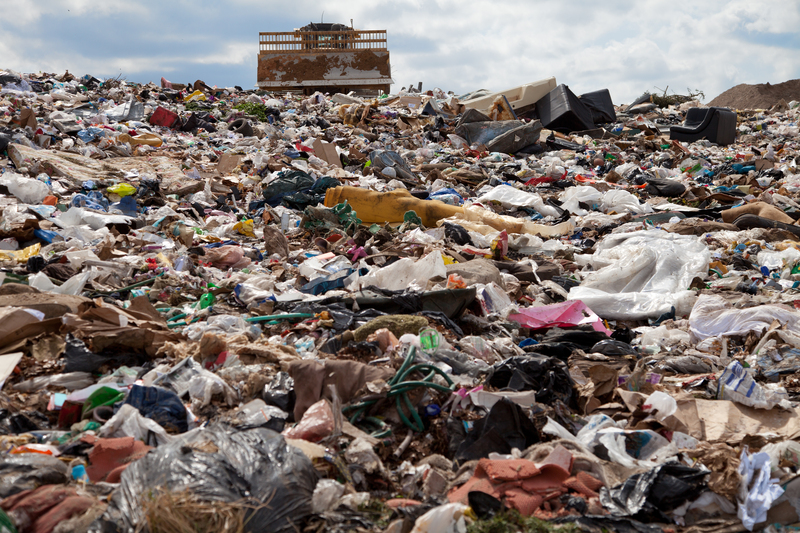Smart Steps for Disposing of PPE Waste Safely and Ethically
The global surge in the use of Personal Protective Equipment (PPE)--such as masks, gloves, face shields, gowns, and shoe covers--has been critical in safeguarding public health. However, this has also led to an unprecedented increase in PPE waste, posing environmental and ethical challenges. Whether in healthcare, industrial, or daily consumer contexts, understanding the smart steps for disposing of PPE waste safely and ethically has become vital. This comprehensive guide breaks down the process, offering actionable advice for responsible PPE disposal and environmental safety.
Why Proper PPE Waste Disposal Matters
Improper handling and dumping of PPE waste has significant consequences:
- It increases the risk of transmission of contagious diseases.
- PPE materials like plastics and synthetics persist in the environment, contributing to pollution.
- Animals and marine life can ingest or become entangled in discarded PPE, with fatal results.
- Inefficient disposal continues to put waste workers at risk.

Common Types of PPE Waste
Before we dive into smart disposal strategies, let's clarify what is considered PPE waste:
- Single-use face masks (surgical, N95, cloth masks)
- Disposable gloves (nitrile, latex, vinyl)
- Aprons, gowns, and coveralls
- Face shields and goggles
- Shoe covers and hairnets
- Sanitary wipes or tissues used in conjunction with PPE
Key Principles for Safe and Ethical PPE Disposal
Disposing of PPE waste responsibly requires a blend of personal diligence, institutional protocols, and community awareness. Here are the foundations:
- Segregation at Source - Keep used PPE separate from regular recyclables and general waste to avoid cross-contamination.
- Safe Handling - Treat all used PPE as potentially infectious; use gloves and avoid direct contact when discarding.
- Proper Containment - Use double-bagging or properly labeled biohazard bags to contain everything securely.
- Appropriate Disposal Routes - Utilize dedicated collection bins, medical waste channels, and inform yourself about local PPE disposal guidelines.
- Environmental Mindfulness - Avoid littering; choose eco-friendly or reusable PPE when possible.
PPE Waste Disposal in Healthcare Settings
Hospital and Clinic Protocols
Healthcare facilities generate large volumes of PPE waste, much of which could be infectious. Here's how they manage it responsibly:
- Labeled Bins: Distinct bins for PPE (often yellow or red) ensure correct storage away from general waste.
- Biohazard Handling: PPE is treated as clinical or biohazard waste. Waste handlers wear protective gear to transport filled bags securely to disposal sites.
- Incineration and Autoclaving: Most medical PPE is incinerated at high temperatures or autoclaved (steam sterilization) before final disposal to eliminate pathogens.
- Record Keeping: Facilities maintain strict disposal logs for auditing and compliance.
Dental and Veterinary Practices
Dental and animal clinics also use high volumes of PPE. Best practices include:
- Separate, clearly marked bins in treatment rooms.
- Do not reuse disposable PPE or gloves.
- Partner with licensed medical waste collectors for timely disposal.
Safe PPE Disposal at Home and in Public Places
Household Guidelines for PPE Waste
For households, especially those isolating due to illness, ethical PPE waste disposal is critical:
- Designate a lined, foot-operated waste bin for used PPE items.
- Do not throw masks or gloves into recycling bins--these are non-recyclable in most municipal programs.
- Double-bag PPE waste, tie bags securely, and store them out of reach of children and animals.
- If anyone is sick: Wait 72 hours (if possible) before adding securely tied PPE bags to external trash to reduce viral risk.
- Wash hands immediately after any contact with used PPE or handling waste bags.
Disposing PPE Waste Safely in Public
Whether at schools, offices, malls, or outdoor spaces, improper PPE littering is a growing issue. Follow these steps:
- Look for labeled PPE or infectious waste bins in public areas.
- If no dedicated bin is available, seal used items in a carry bag and dispose of them in a regular trash bin when possible.
- Never discard PPE on the ground, in water bodies, or in non-designated places. This careless disposal endangers sanitation workers and the environment.
Reducing PPE Waste: Smart and Sustainable Choices
The safest and most ethical route is to minimize PPE waste from the start. Consider these smart steps:
Opt for Reusable PPE When Possible
- Reusable Cloth Masks: High-quality, multi-layer masks can be washed and reused and are suitable for general use by the public.
- Reusable Face Shields and Goggles: Sanitize these after each use following manufacturer instructions.
- Washable Gowns: Used in healthcare and laboratories, these can be laundered with hospital-grade disinfectants.
Reduce Single-Use Items
- Buy PPE in bulk to minimize packaging waste.
- Educate staff, patients, and families on PPE usage, so items are used only when necessary.
Innovations and Ethical Approaches to PPE Waste Disposal
Amidst rising waste, industries and scientists have developed innovative disposal methods:
Mechanical Recycling
- Certain types of PPE, such as polypropylene masks, can undergo specialized recycling to create construction materials, fuel, or secondary textiles after decontamination.
- This requires dedicated collection and processing infrastructure, not available in standard public programs.
Biodegradable and Compostable PPE
- New PPE made from cellulose, bioplastics, and other organic fibers can degrade faster and more safely in landfills or composting systems.
- Always check product specifications for proper disposal, as not all biodegradable PPE can be composted at home.
Ethical Responsibility: Protecting Others and the Environment
Each step you take in safe PPE waste disposal is an act of community care and environmental responsibility.
- Share PPE disposal knowledge among neighbors, colleagues, and family.
- Support local recycling or take-back programs if available.
- Encourage businesses and public spaces to provide dedicated PPE bins and signage.
- Volunteer for community clean-ups focused on PPE litter collection. Every effort counts!
PPE Waste and Legal Requirements
PPE waste management regulations vary by country and state. Here's what you need to know:
- Healthcare and medical PPE waste is usually classified as infectious medical waste and subject to strict incineration or treatment laws.
- Household and workplace PPE waste may not be regulated unless linked to active infection; however, some municipalities have implemented emergency rules for COVID-19 and flu surges.
- Follow national and local regulations for PPE handling, bag labeling, and disposal to avoid penalties and protect public health.
Addressing Common Myths About PPE Waste Disposal
- Myth: "Used masks and gloves go into my recycling bin."
Fact: These items are not recyclable in most curbside programs. They contaminate recycling loads and endanger workers. - Myth: "PPE is harmless once discarded."
Fact: Even after use, PPE can carry viruses or chemicals; responsible containment and disposal is necessary. - Myth: "Flushing PPE down the toilet is safe."
Fact: Never dispose of PPE in sinks, toilets, or storm drains--it clogs systems and adds to water pollution.

Frequently Asked Questions on Smart PPE Waste Disposal
What should I do if I see discarded PPE litter?
Use gloves to pick it up, place it in a plastic bag, and seal before adding to general waste. Dispose of gloves and wash your hands immediately.
Can I disinfect masks and gloves for reuse?
Most disposable masks and gloves cannot be safely reused. Follow manufacturer guidelines and err on the side of caution.
Are compostable masks better than regular ones?
Compostable PPE breaks down faster, reducing its environmental footprint. Look for products certified as home-compostable for best results.
Conclusion: Making Smart, Ethical Choices in PPE Disposal
Navigating the rise in PPE waste demands both individual responsibility and community action. By embracing smart steps for disposing of PPE waste safely and ethically, we can:
- Sustain our health and that of future generations;
- Reduce unnecessary environmental damage;
- Support sanitation and waste workers through safer disposal habits.
Commit to making PPE waste disposal a mindful part of your routine--because protecting yourself should never come at the cost of others or the planet.
